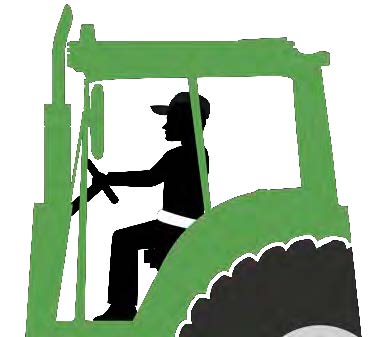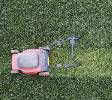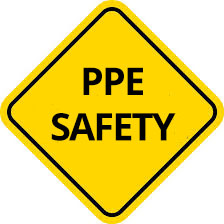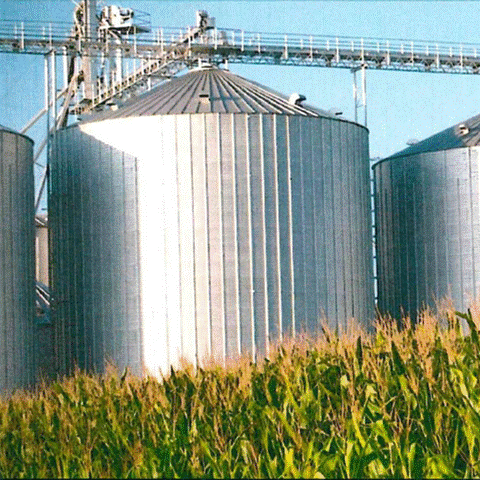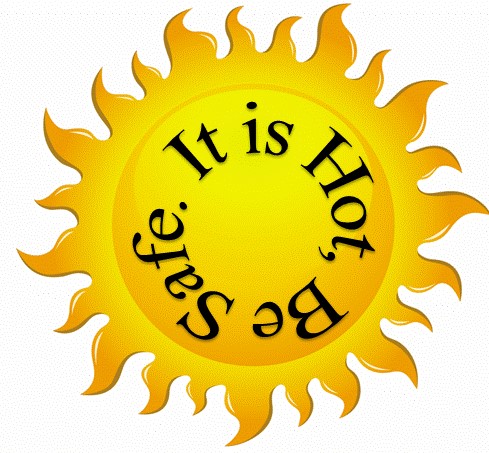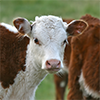Farm and Home Safety Tips for Arkansans
Farming is considered one of the most hazardous and dangerous occupations in the U.S.
Farm owners and agricultural workers use a diverse selection of equipment and tools
— combines, trailers, sprayers, pumps, just to name a few — that can be dangerous
to life and limb if not operated in a safe manner. Farmers are exposed to dangerous
situations and they are at very high risk of nonfatal and fatal injuries.
Each year, more agriculture-related deaths occur than in any other industry.
Among the potentially life threatening farm hazards are farm machinery and equipment,
agricultural chemicals, grain bins, livestock handling, sun and heat, toxic gases,
silos, wells, and tractors. Unfortunately, the annual death rate for farm workers
involving on-farm accidents is more than 20 per 100,000 workers in the United States,
twice the number of deaths in the next highest risk industries — mining.
The agricultural death rates in almost every survey published are higher from April
through September, the peak growing and harvesting season. Farm-related injuries declined
from 87,503 in 2001 to 58,385 in 2014. In part this is because safety features have
been added to farm equipment.
Unintentional injuries account for over 100,000 in-home deaths each year.
Often, these tragedies happen when least expected – during a vacation, while doing
routine works at home or while driving across town – and they are all preventable.
It is important that farm workers and home owners be aware of potential hazards in
day-to-day events to reduce the possibility of injury or death. Because your safety
is the primary goal of the safety program at the University of Arkansas - Division
of Agriculture, we are dedicated to provide safety rules you can follow to prevent
possible injury or death. Details for safe operation vary widely amongst different
equipment and you should always read the manual and follow proper procedures.
Any equipment on the farm, large or small, may present hazards to workers or bystanders.
The mobility of some machines adds another dimension to the hazards presented to the
operator or bystander. Large and small farm equipment pose different hazards based
on their size, but also share some hazards in common. The purpose of this section
is to describe hazards more specific to what is considered “large farm equipment”
and offer some tips a farmer/operator might employ to prevent accidents while using
this type of equipment.
Prevent accidents with farm equipment with these helpful tips
Small equipment, i.e., lawn mowers, are essential equipment found in many homes with
a yard in the United States. They enable homeowners and grounds keepers to comply
with municipality codes and maintain neat and good-looking yards. Many children and
teenagers like to earn extra money by mowing lawns during the grass-growing season.
Each year more than 600 children undergo amputations as the result of lawn mower-related
injuries. According to the U.S. Consumer Product Safety Commission (CPSC), small equipment
can be extremely dangerous if not operated safely and properly.
Stay safe with small equipment around the home with these tips
Employee safety is regulated by the Occupational Safety and Health Administration
(OSHA). Only farms with 11 or more employees are required to meet all OSHA labor regulations.
All growers and employee, however, are required to comply with farm shop safety rules.
Personal protective equipment (PPE) is designed to prevent or minimize the severity
of injuries to workers performing farm work. PPE must be inspected prior to use on
each work shift to ensure it is in serviceable condition. This section will provide
some tips related to the importance of farm shop safety.
Read more about farm shop safety
Flowing grain remains the number one cause of fatalities for grain handlers. Large
or unstable quantities of grain can flow like liquids. It is difficult or impossible
for a grain handler to move if caught in grain flow. A grain handler can be buried
in a few seconds if caught in grain flow, resulting in suffocation. This section explores
some grain handling hazards and presents tips for accident prevention.
Avoid deaths from improper grain handling safety
Farmers and ranchers perform most farming activities outdoors. They need to be careful
about their exposure to the ultraviolet rays (UV) of the sun. There are two types
of ultraviolet rays: Ultraviolet A (UVA) and Ultraviolet B (UVB). Repeated exposure
to the UV rays of the sun will most likely to damage a person’s skin and increase
the risk for developing skin cancer. It is the most common type of cancer in the United
States which causes damaging changes to a person’s skin.
No one is completely protected from the sun’s UV rays; however, some skin types are
more susceptible than others. People with blonde or red hair, fair skin, or freckles
tend to get sunburned more quickly than others and should be even more vigilant about
protecting themselves from the sun. This section deals with some tips that could help
protect our producers while performing outdoor farming.
Make safer choices with these outdoor farming safety tips
Several farmers work around livestock on a daily basis. It should be known that animals
sense their surroundings very differently. Due to their sensitive hearing, livestock
are able to detect sounds that humans cannot hear. Loud noises easily frighten them.
Research shows high frequency sounds actually hurt animals’ ears. This may explain
why some animals are nervous in unfamiliar surroundings. Many animals see in black
and white, not color. Some animals’ eyes sense movement better than human eyes. Cattle
have almost 360° panoramic vision and can be spooked by quick movements behind them.
On the other hand, cows and pigs have poor depth insight and difficulty in judging
distances. Accordingly, cows are seemingly unable to differentiate the difference
between a real cattle guard and parallel stripes painted on a road. This section emphasizes
some tips related to livestock handling safety.
Protect your livestock with better livestock handling safety
